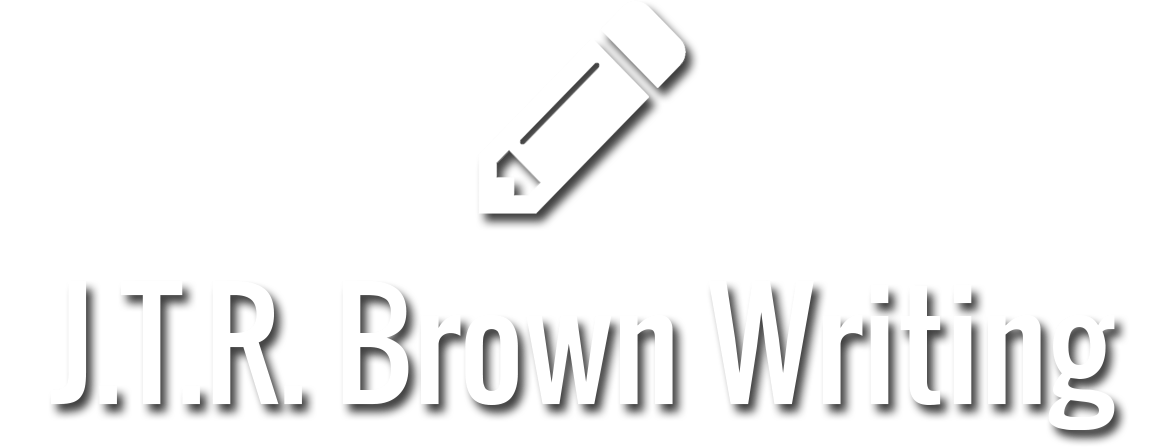f there is one thing I've learned from writing fiction for ten years it's that I'm a crappy writer. I use infinite-verb pharses. My diction swings from colloquial to formal in nonsensical patterns. My narrative distance is schizophrenic; in someone's head one minute, a million miles above them the next. My grammar stinks. My syntax is worse.
In all of my failures in the literary field I have learned that my ideas are hackneyed, underdeveloped cliches and my writing is stilted, clunky garbage. As I analyze the reasons for my continual artistic face-plants, I have come to the conclusion that every successful writer has at least one of these three things: Superior intellect, prodigous talent, or a formal education in writing.
I certainly don't have superior intellect. My ideas would be dismissed as infantile and absurd in the hallowed halls of academia. I can't even understand some of my intellectual friends' facebook posts, much less the philosophy, economics, or physicsthat they study.
I also lack prodigous talent. Some people integrate all the mind-numbing rules of what makes good writing into their collective literary voice as if it is the most natural thing in the world. And for those with prodiguous talent, it is the most natural thing in the world. For me, it is a constant battle between flat, boring prose and stilted, flowery abstractions. Somewhere, between those two things is good writing. Or so I hear.
Some writers can attain proficency via formal education. While I do have a Master's Degree, it is in a completely unrelated field. Sorry to say, there is not a lot of synergy between Social Work and Creative Writing.
So what make me think I have anything to say? Why do I have a right to self-publish my innane drivel and take up space on the internet with my dopey blog? The answer, it turns out, came from my son.
My wife handed me a blue piece of paper when I got home from work one day. On it was a lopsided circle. In the circle were two asymmetrical dots and a squiggly line underneath. There were two parallel lines sticking out of the bottom of the lumpy circle. After a moment I saw what it was; a person. It was my three-year-old's first concrete concept, rendered in way that you could discern what it was. It moved me so deeply, I started crying. I could see the labor and passion he had put into it. I could see his creative spirit channelled into a tangible work. It was art. Beautiful, touching, powerful art.
I had an epiphany when I saw his drawing. It didn't matter that it wasn't revolutionary avant-garde Cubism that was going to define American art for generations. It spoke to me more than any other piece of visual art ever had. It was a genuine expression of all the physical, psychological and spiritual things that make him who he is, filtered through his fingers.
That's when I realized that, no matter how crappy my writing is, it still has the ability to speak to someone. There is no person who has the exact same make-up of life experience, principles, faults, emotions, knowledge, or even gaps in knowledge that I have. There is no human like me, or you, or the kid next door. Therefore the art that we create is a unique confluence of innumerable factors, brought together in a synethesis that is unlike what anyone else has created, ever.
Even if you write the most cliche vampire romance novel, nearly indesernible from the thousands, maybe millions of novels just like it, there is something unique about it because of its creator's subjective interaction with the world. There is also someone out there who is bound to me moved, touched, entertained, or amused by it.
Art is a subjective experience. Try as we might to apply concrete principles and therefore create "objective" criticism, it is an act of futility. What one person finds boring, mindless, inscrutable, shallow, arbitrary, or self-important, another person is going to be riveted by. Or it will make them laugh until they pee their pants at the library. Or it will remind them of their first love and mystify them with nostalgia. Just as the elements that make up the artist are a unique sequence of traits, so too are those that make-up the reader. The themes of any one piece are bound to communicate themselves effectively to someone out there who has the necessary make-up to be touched by just such a piece.
So that is why I keep writing my crappy stories, and why I encourage other crappy writers to keep writing their crappy stories. Because they are purely our own, imperfect as the persons who created them, mined from a psyche made of endless possibilities. And the outcome of this expedition-of-the-imagination is bound to speak to someone, infinite-verb phrases and all.
